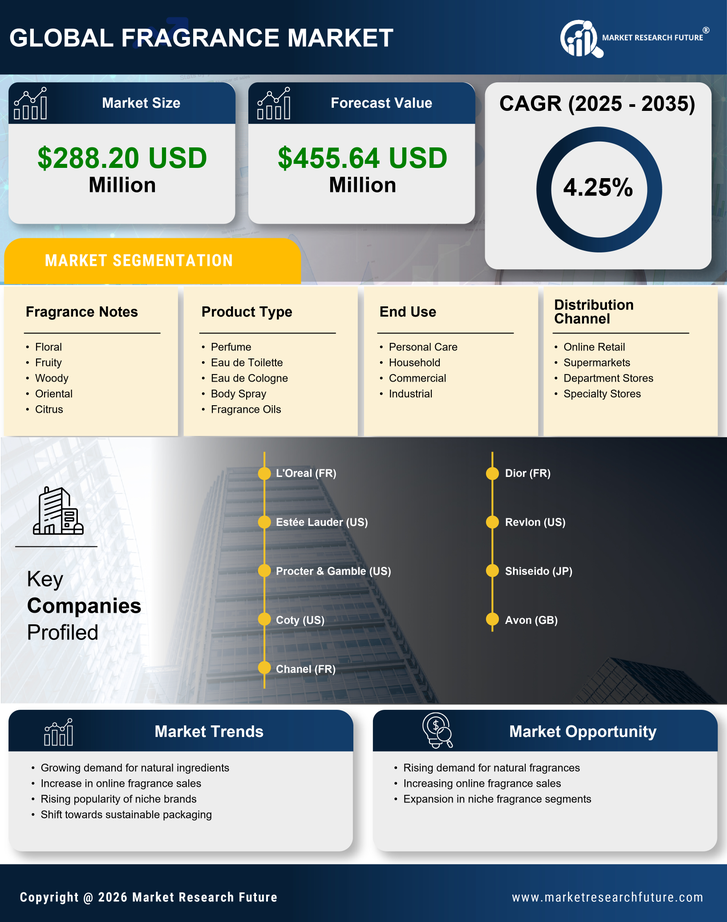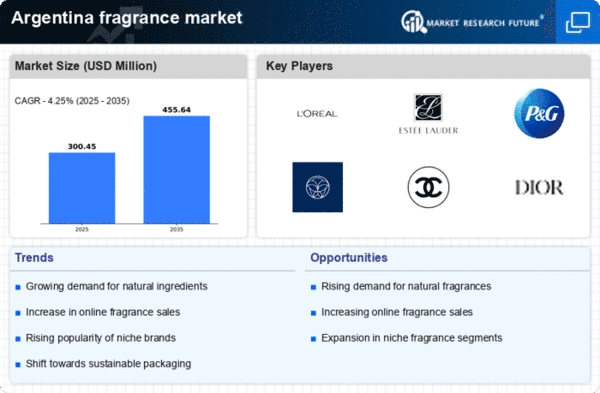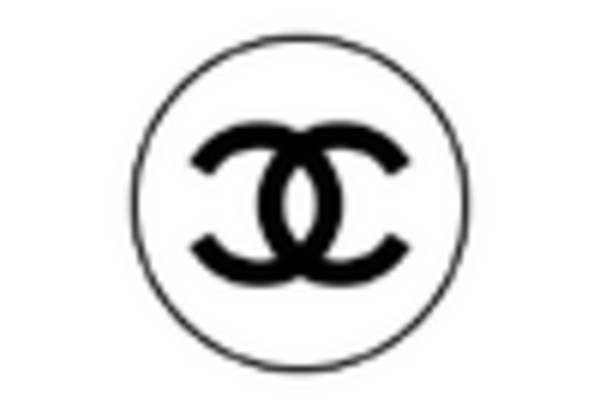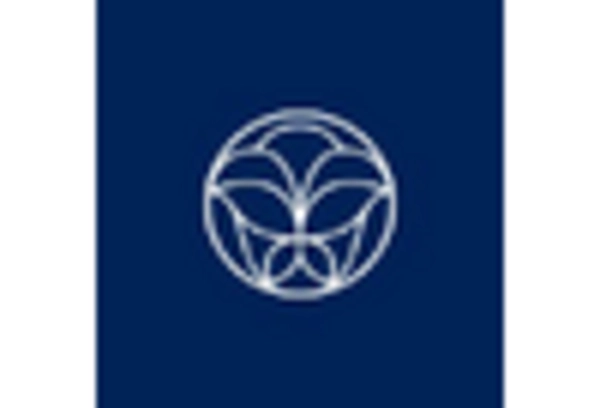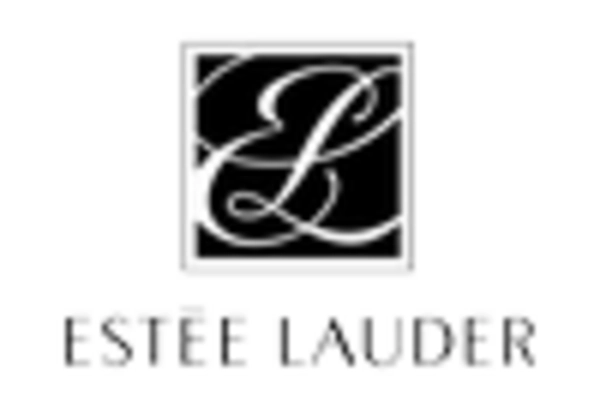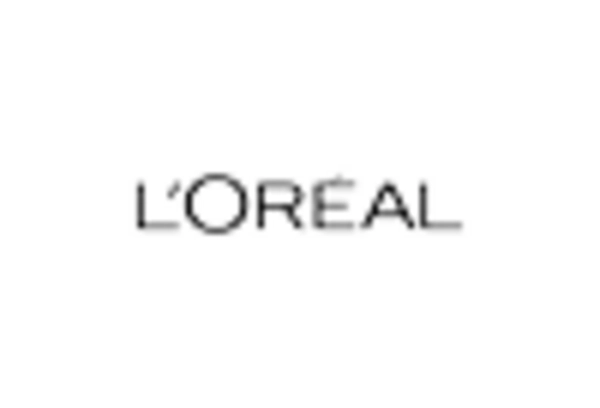Growing Middle-Class Population
The expanding middle-class population in Argentina appears to be a significant driver for the fragrance market. As disposable incomes rise, consumers are increasingly willing to invest in personal care products, including fragrances. This demographic shift suggests a potential increase in demand for both luxury and affordable fragrance options. Market data indicates that the middle-class segment is projected to grow by approximately 20% over the next five years, which could lead to a corresponding increase in fragrance consumption. The fragrance market in Argentina may benefit from this trend, as brands tailor their offerings to appeal to this emerging consumer base, focusing on quality and brand prestige.
Emergence of E-commerce Platforms
The rise of e-commerce platforms in Argentina is reshaping the fragrance market landscape. With increasing internet penetration and smartphone usage, consumers are turning to online shopping for convenience and variety. Data shows that online sales of fragrances have surged by 25% in the past year, indicating a shift in purchasing behavior. This trend suggests that brands must adapt their distribution strategies to include robust online presence and marketing efforts. The fragrance market in Argentina could see further growth as e-commerce continues to expand, providing consumers with access to a wider range of products and brands that may not be available in physical stores.
Cultural Significance of Fragrances
In Argentina, fragrances hold a unique cultural significance, often associated with personal identity and social status. The fragrance market is influenced by local customs and traditions, where scents are used in various social settings, from family gatherings to formal events. This cultural attachment to fragrances suggests a steady demand for both traditional and contemporary scents. Market analysis indicates that approximately 40% of consumers in Argentina consider fragrance a vital part of their daily routine, which underscores the importance of this market segment. Brands that understand and incorporate local cultural elements into their offerings may find greater success in appealing to Argentine consumers.
Focus on Natural and Organic Ingredients
The growing consumer preference for natural and organic ingredients is becoming a pivotal driver in the fragrance market in Argentina. As awareness of health and environmental issues increases, consumers are seeking products that align with their values. This trend is reflected in the rising demand for fragrances made from natural sources, which are perceived as safer and more sustainable. Market data indicates that sales of natural fragrances have increased by approximately 15% over the last year. Brands that prioritize transparency in their ingredient sourcing and production processes may find a competitive edge in this evolving market, appealing to environmentally conscious consumers.
Influence of Social Media and Celebrity Endorsements
The impact of social media and celebrity endorsements on consumer behavior is becoming increasingly pronounced in Argentina's fragrance market. Platforms such as Instagram and TikTok serve as vital channels for brands to engage with potential customers. Influencers and celebrities often promote specific fragrances, creating a buzz that can lead to spikes in sales. Recent data suggests that fragrances endorsed by popular figures can see sales increases of up to 30% shortly after launch. This trend indicates that the fragrance market is evolving, with brands needing to leverage digital marketing strategies to capture the attention of younger consumers who are heavily influenced by online trends.
